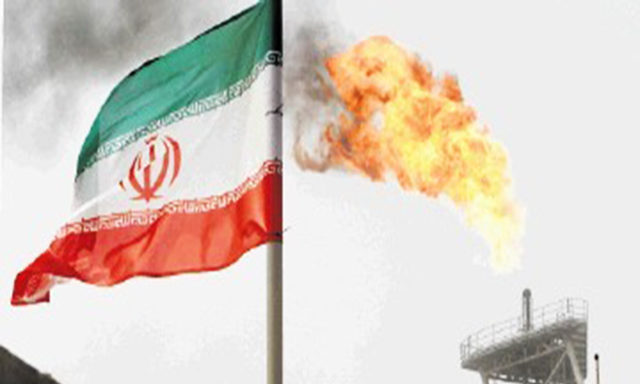
Iran is failing to fulfil the “spirit” of its nuclear deal with world powers, US President Donald Trump has declared, setting an ominous tone for his forthcoming decision about whether to pull America out of the landmark agreement.
As he often had during his election campaign, Mr Trump ripped into the deal struck by Iran, the US and other world powers in 2015 and said “it shouldn’t have been signed”. Yet he pointedly stopped sort of signalling whether or not the US would stay in.
“They are not living up to the spirit of the agreement, I can tell you that,” he said of the Iranians on Thursday, though he did not mention any specific violations.
Earlier this week, the administration certified to Congress than Iran was complying – at least technically – with the terms of the deal, clearing the way for Iran to continue enjoying sanctions relief in the near term.
Mr Trump and his top officials have been walking a narrow line as they seek to show an aggressive stance. While disparaging the nuclear deal and accusing Iran of fomenting violence and terrorism throughout the Middle East, Mr Trump has avoided committing to abandoning the agreement, a move that would be staunchly opposed by US businesses and European allies.
Yet the president seems keenly aware that his indecisiveness about the deal’s future is a step back from his campaign declaration that as president he would rip it up or renegotiate.
He said of Iran: “I think they are doing a tremendous disservice to an agreement that was signed.”
Under the deal, brokered during the Obama administration, Iran agreed to roll back key aspects of its nuclear programme in exchange for relief from certain economic sanctions.
Critics have said it is unfathomable that the USwould grant sanctions relief to Tehran while it continues testing ballistic missiles, violating human rights and supporting extremist groups elsewhere in the Middle East.
By design, the nuclear deal does not address those Western grievances, meaning that Iran can be in compliance even as it violates UN resolutions and remains a US-designated state sponsor of terrorism. The US has continued to punish Tehran for those activities with non-nuclear sanctions.
Mr Trump has not given a timeline for when his administration’s review of Iran policy – including whether to stick with the deal – will be complete. But the US must decide next month whether to renew a waiver so Iran can continue receiving sanctions relief.
At a news conference in Israel on Friday with Defence Minister Avigdor Lieberman, Defence Secretary Jim Mattis was asked about Iran and the administration’s position on the nuclear agreement.
He said Iranians “appear to be living up to their part of the agreement” and that “it continues to be in force”.
“That in no way mitigates against or excuses the other Iranian activities in the region including the war in Yemen that grinds on and what they’re doing in Syria” to keep President Bashar Assad in power,“ he said, adding: “But the agreement on nuclear issues still stands and that’s all I can say about it.“
In Washington, Mr Trump joined Italian Prime Minister Paolo Gentiloni for a White House news conference at a tense time for Europe, which was reeling from another deadly attack in Paris on Thursday ahead of a pivotal presidential vote in France on Sunday.
The French election is being seen as a bellwether for whether the move toward nationalism and separation from the European Union, displayed by Britain’s move to leave the EU, will continue spreading to other European countries.
Mr Trump did not specifically weigh in on the French election, nor would he say outright whether he supported countries staying in the EU. But he said a strong Europe is “very, very important” to the US.
“We will help it be strong, and it’s very much to everybody’s advantage,” he said.
Recommended for you
